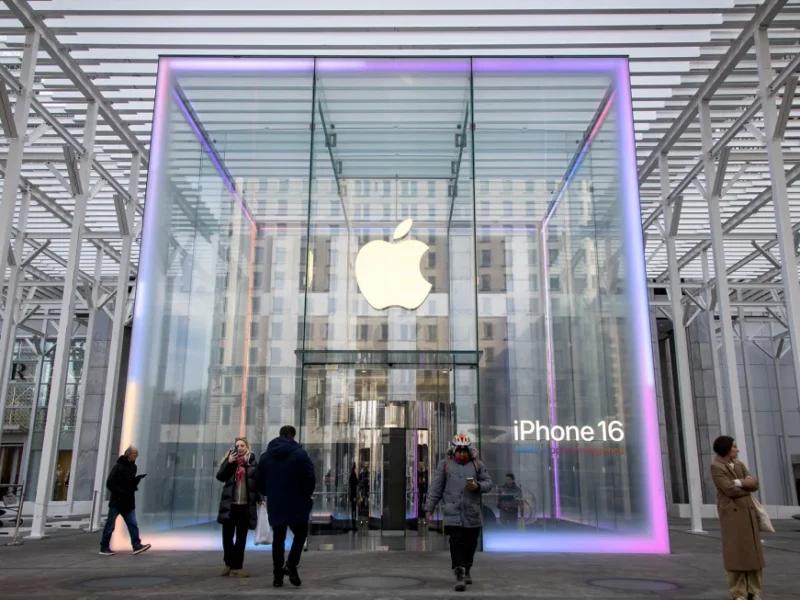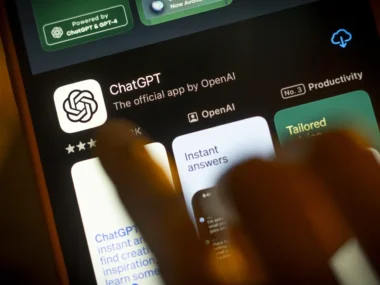Apple has faced heavy criticism from tech and financial media for its unusually disorganized approach to artificial intelligence. After unveiling an AI-powered Siri in June, the company has now indefinitely delayed its release. The AI features it has introduced so far, like text message summaries, have been widely regarded as ineffective.
While Apple’s slow rollout has drawn fair criticism, some arguments miss the bigger picture. Like other major tech firms, Apple is racing to integrate AI into its products—not necessarily because customers are demanding it, but because AI is seen as the future. However, the specific problems it aims to solve remain unclear. Last year, Apple even had to retract an AI-focused ad after receiving strong public backlash.
The real driver behind this AI push is investor pressure. Wall Street has been eagerly awaiting an Apple “super cycle”—a breakthrough upgrade that compels consumers to buy new devices. In its attempt to satisfy shareholders, Apple made an uncommon misstep. Acknowledging this, the company has announced that the delayed features will launch “in the coming year.”
However, this delay has fueled concerns that Apple is falling behind in what is considered the most significant technological advancement in decades—shaping a narrative that may not fully reflect reality.
AI can only be failed
In policy circles, there’s a well-known saying: “The party can never fail, it can only be failed.” It’s a critique of ideological loyalists who shift blame onto voters rather than the party itself when things go wrong.
A similar mindset has taken hold among AI’s strongest advocates—AI isn’t flawed, they argue; it’s just being misused or misunderstood. If AI doesn’t work as expected, the fault lies with us, the users who fail to grasp its potential. While even AI supporters acknowledge its current flaws—no one pretends the AI-generated content flooding social media is anything but low-quality—many still insist AI is both inevitable and revolutionary.
Some tech analysts, like the New York Times’ Kevin Roose, suggest that Apple has failed AI rather than the other way around. Roose recently stated on his Hard Fork podcast that Apple isn’t embracing AI’s potential, arguing that companies integrating generative AI need to accept imperfection and occasional errors in their products.
That perspective, however, clashes with Apple’s fundamental approach. Apple, a $3-trillion giant shaped by Steve Jobs’ meticulous vision, prioritizes seamless, secure, and highly polished user experiences. The company’s tightly controlled iOS ecosystem—though criticized for monopolistic tendencies—has built consumer trust in Apple’s ability to safeguard sensitive data.
Apple’s focus on security and ease of use is why millions of people confidently scan their faces, store banking details, and share real-time locations on iPhones. The company has built a reputation for creating intuitive products that work effortlessly out of the box, with minimal need for instructions. Even older users can navigate FaceTime with ease.
Roose argues that AI users already understand its imperfections and learn to interact with chatbots correctly. But this expectation shifts responsibility onto users, suggesting they must adapt to AI’s limitations—on top of managing daily life, work, and responsibilities.
Roose believes Apple should continue embedding AI into its products, even if the technology remains rough around the edges. But to what end? As Hard Fork co-host Casey Newton points out, neither Google nor Amazon has introduced an AI-driven breakthrough that compels consumers to upgrade their devices.
AI remains more of a scientific and research breakthrough than a fully realized consumer product. While platforms like ChatGPT and Claude have shown promise, AI that is only mostly accurate—say, 80% of the time—is unreliable for everyday use.
Take Apple’s June pitch for its upgraded Siri. Imagine asking, Hey Siri, when does my mom’s flight land, and at which airport? Ideally, Siri would scan your emails and texts, then provide an answer—saving you time. But if the response is even slightly inaccurate, it’s worthless. A mere 2% error rate could mean your mom is left stranded at the airport.
Ultimately, Apple isn’t lagging behind in AI—AI itself is struggling to prove its real value.











